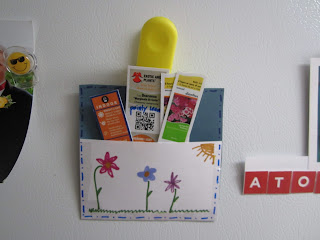I am writing this because I need to work on this. I have
been working on it, actually. So I’ve thought a lot about it, read things about
it, and given family home evening lessons on it. I thought it would help
solidify it in my mind if I wrote blog post, almost like a church talk, on the
subject. And maybe those reading this would benefit from the resources I’ve
found as well.
Hopefully we all know there is a difference between judging
what kind of people you should hang out with or let your kids hang out with
(intermediate judgments) and condemning others for their weaknesses and sins
(final judgments). If there is any question about that, see Elder Oaks’
excellent talk,
“Judge Not” and Judging.
I am mainly focusing on final judgments. Elder Oaks talks
about final judgments as assuming we know the eternal outcome of someone’s
mortal existence. I don’t think many of us presume to know that, but we might make judgments in our mind thinking
that what we see is the way people are and always will be. We might look at
others and see their weaknesses and let that define them in our minds. To me
that is a form of final judgment.
Elder Oaks says, “we must refrain from making final
judgments on people because we lack the knowledge and the wisdom to do so. We
would even apply the wrong standards.” The truth is, we not only don’t have the
right to make final judgments about people, but we don’t have the wisdom to do
so.
President Monson’s talk in priesthood session, “
See Others as They May Become,” kind of counteracts this problem. Instead of seeing people
as hopelessly flawed, “we need to bear in mind that people can change.”
This brings me to the next important point. When we presume
to be able to see others’ weakness clearly, we are really kidding ourselves.
“Who am I to judge another when I walk imperfectly,” from
hymn 220 comes to
mind. I’ve been reading the New Testament, and Paul teaches, “For all have
sinned, and come short of the glory o God.” (
Romans 3:23) We
all need a Redeemer. So we are really all on the same
page. Paul again asks, “Why dost thou judge thy brother?...For we shall all
stand before the judgment seat of Christ.” (
Romans 14:10)
And, “Who art thou that judgest another man’s servant? To
his own master he standeth or falleth.” (
Romans 14:4) Everyone around us is
accountable to God, not to us. And we don’t know what is really going on, what
they’ve been through or where they are coming from.
In talking with my mom recently I realized that there are
things that bug me about people in my life. Like maybe one thing for each friend.
My mom felt the same way. And it makes me wonder, “what is the big thing that
bugs my friends and family about me?” I
have sometimes imagined what it would be like to tell a friend, “THIS is your
problem, this is what YOU need to work on.” But what if someone did that to me?
Would I be able to handle it if someone I loved came to me and told me my major
flaw? I would probably feel defensive and explain why I am like that. Then in
the quiet moments that followed the conversation I would probably worry about
how people see me and if I could ever improve something that is so much a part
of who I am. The point is, this is of course not the way to deal with each
other’s weaknesses. Maybe some day I could be the type of friend who would be
able to help someone see their weakness in a completely loving way that would
leave them with confidence that they could do better. Today is not that day.
But we all have at least one friend who is like that: Our
Heavenly Father and Jesus Christ. They love us and know us perfectly. It
strikes me that instead of focusing on the weaknesses of others, that a much
better use of my energy would be to humble myself enough that God could tell me
what my major flaw is and that I could handle it; That I could be humble enough
to acknowledge that He is right and know that He doesn’t love me any less, feel
a desire to be better, and have the faith that I could access the atonement and
really improve. If I did that than I would probably have a lot more patience
for other people the their weaknesses as well.
A friend recently made the most insightful Facebook post.
She pretty much sums up everything I have been talking about. She said,
“The ability to love is inseparably connected to the desire
and willingness to constantly forgive for hurt or pain you receive and to
constantly repent and change so you can better help and serve others. Love is
sacrifice. Love is doing everything in your power to become more like Christ.”
-Kelsey
Howell
I hope that these thoughts will not only click in my mind,
but will sink into my heart. I know that being full of love is a happier way to
go. See
Mosiah 4:9-12 for a formula on how to have joy and be filled with the love of God.
I hope this was insightful. I am sure you are all doing
better at this than I am. : )






